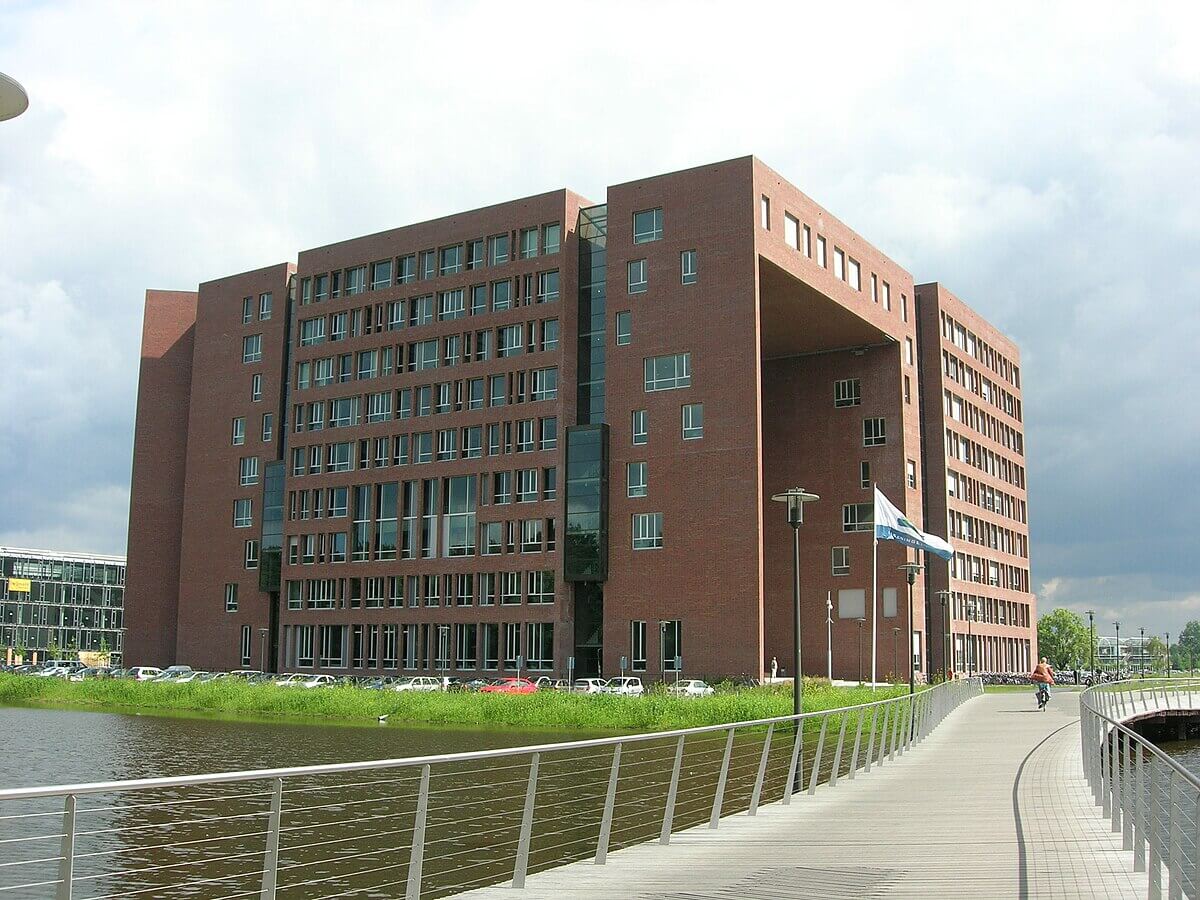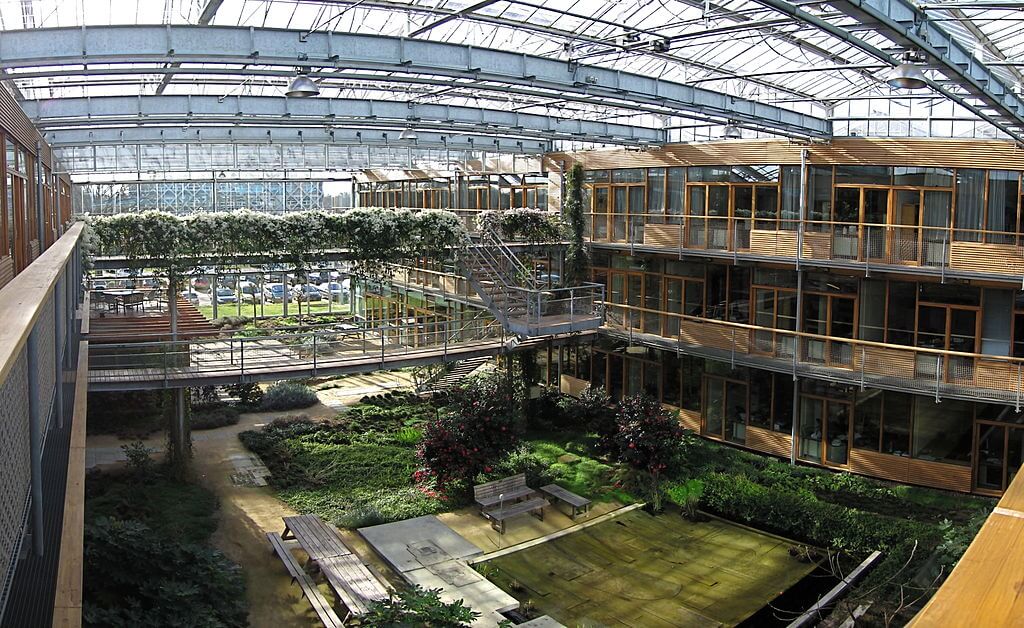The Master's Animal Sciences is a two year programme and tailor made to the interests and knowledge of the student. Together with your study adviser, you design your own programme. The general elements of the programme are courses, academic skills training, a major thesis and a research practice or internship. Today’s specialists in livestock and companion animals need a fundamental scientific training, combined with a critical attitude towards all aspects constraining sustainable development of animal husbandry. The master's Animal Sciences, which is unique for the Netherlands, offers the multidisciplinary training necessary for a future career in this field.
Outline of the programme
Year 1 (courses, specialisation)
The first year mostly consists of courses which will prepare you for writing your thesis and research practice or internship in the second year.
Courses (60 credits)
Which courses you will take, depends on several factors: your previously acquired competences, your basic knowledge and your choice of specialisation. Courses can be compulsory or restricted optional. The exact course programme of the MSc Animal Sciences depends therefore for the majority on the individual student. Compulsory courses can be Advanced Statistics or bachelor courses in a specific field, in case you lack the necessary basic knowledge. Compulsory courses also include various academic skills courses ranging from scientific skills to consultancy skills. In addition, it also include thesis-preparing courses linked to the specialisation of your choice.
Information on the courses within the Animal Sciences programme and their planning can be found in the online course catalogue.
Specialisation
Each of the specialisations trains you to become an expert in that field (check the side-bar for information on each specialisation). Within your specialisation you will choose a specific thesis track, which is offered by one of the chair groups from this specialisation. The two major parts of your specialisation are the (thesis-preparing) courses and a major thesis. You can extend your specialisation with an internship or a research practice. It is also possible to do a research practice at another thesis track or specialisation.
Year 2 (major thesis, internship, research practice)
During the second year you write a major thesis in combination with a research practice or an internship. Whether you will do a research practice or an internship depends on your previous education. Besides our specialisation, you could also choose to follow a professional career interests and/or participate in an international exchange programme.
Major thesis (36 credits)
The major thesis is the final piece of work a student delivers prior to graduation. In a major thesis, you will perform a scientific research project, usually at one of the chair groups of the Animal Sciences department. The major thesis consists of at least of a literature study, writing a research proposal, performing scientific experiments, data analysis, writing a scientific report, and presenting results orally. Your own interest is very important in choosing a research topic for your major thesis. The study advisers and the websites of the Animal Sciences chair groups provide much information on possible thesis subjects. There are multiple collaborations between research institutes within Wageningen University & Research, as well as with national and international universities and companies active in the field of Animal Sciences.
Find out more about the chair groups of the Animal Sciences department.
Internship (24 credits)
The aim of an academic internship is that students assimilate the institutional, entrepreneurial and labour reality of their social setting of future academic positions. Proper internships require that students apply their scientific knowledge, exercise their professional skills, learn to work independently with a sense of responsibility for the organisation and can expand their personal network. Many students conduct their internship at a university or a research institution abroad, but an internship can also be conducted at a company in The Netherlands or abroad. The choice of an internship location is based on the interests and wishes of the student and the (worldwide) contacts of the staff of the chair group.
Research practice (24 credits)
A research practice is comparable to a major thesis with respect to the learning goals and composition. It is also a research project, but of a shorter duration. In addition, students also reflect on their career perspective. A research practice can be used to deepen and extend your knowledge on the topic of your specialisation. In that case it is usually performed at or via the chair group from your specialisation.
A research practice can also be used to broaden your expertise, for instance by choosing a thesis subject in a specific professional direction. Then it is performed at a chair group outside the Animal Sciences department. You can read more about it under the tab: Professional career interests.
Professional career interests
Are you interested in a specific role in society after graduating? Then you may choose -next to your specialisation and instead of an internship- a research practice in a specific field, think of research, education, communication or economy, that helps you to focus towards your future career.
In consultation with your study adviser you can deepen your knowledge on topics outside the domain of animal sciences. You can choose from five different chair groups to orient yourself towards a professional job. To follow a research practice at any of these chair groups, students may have to follow advanced courses in that field.
Interest in (agro)industry
Business Economics group (BEC): Students receive training in business economics providing them with the knowledge to address research questions in the area of the economics of farms and agribusinesses, animal health, plant health, food safety and sustainable agriculture.
Marketing and Consumer Behaviour group (MCB): Students receive training focusing on marketing (management) and consumer behaviour issues related to food and agribusiness, and institutions interested in food and agriculture.
Business Management & Organisation group (BMO): Students receive training in innovation and entrepreneurship in chains and networks, focusing on the agri-food industry.
Interest in (higher) education
Education and Learning Sciences group (ELS): Students will learn to understand and facilitate the enhancement of human potential in response to global challenges (specifically in the domain of food and life sciences).
Interest in (semi)governmental organisations
Public Administration and Policy group (PAP): Students receive training in the governance of wicked problems in the interrelated domains of water and climate; food and agriculture. The generated insights will be used to develop governance arrangements.
Communication, Philosophy and Technology section (CPT): This section consists of three chairgroups: the Strategic Communication group, the Philosophy group and the Knowledge, Technology and Innovation group. All work together to develop a better understanding of the relations between the life sciences and societal change. Their starting point is that technical issues in agriculture, food, health and ecology are closely connected with social issues, such as human relations, democracy, equity and ethics.
Interest in research
Students with a strong interest in research can, in consultation with and after approval of their study adviser, choose for a research oriented track. Within this track, the focus will be on a future career in science. The student participates in the course Research Master Cluster (YWU-60312). The student is advised to follow a research practice instead of an internship.
International exchange programme
The master's Animal Sciences is a very internationally oriented programme. There are many different nationalities within the student population as well as within the employee population. The master's programme of Animal Sciences offers one international study programme, in which students and universities from different countries are involved.
European master's in Animal Breeding and Genetics
The European master's in Animal Breeding and Genetics (EMABG) offers high quality training, both in terms of scientific knowledge as well as didactic skills, provided by six excellent university groups within the EU. This programme is a response to the need of highly qualified graduates in the internationally operating area of farm animal breeding and genetics. If you are well motivated and interested in animal breeding, statistical genetics and genomics this is the right programme for you. For specific questions please take a look at the EMABG programme or contact Dieuwertje Lont (dieuwertje.lont@wur.nl).
"I am really proud of myself that I made it into this programme. I will not take this for granted!"
EMABG student Roberto
Study Load and the Academic Year
The programme is a two-year master in which 60 credits (ECTS) can be obtained per year. The total study load is therefore 120 ECTS. One ECTS corresponds to 28 study load hours, 1 academic year includes 40 teaching weeks. This means students are expected to devote an average of 42 hours per week to their studies, making the programme genuinely full-time.
The academic year in Wageningen is divided into 6 teaching period. Periods last 8 weeks (period 1, 2, 5 and 6) or 4 weeks (period 3 and 4). Each eight-week teaching periods is worth 12 ECTS, usually including two courses. Each four-week teaching period is worth 6 ECTS, usually including one course.
Calender academic year
Teaching Methods
Courses are taught by members of the academic staff, who also form the research groups that produce the scientific content and maintain quality within the programme. Teaching is organised in various ways, and most subjects are trained through lectures, tutorials (group work through assignments), practicals, problem-based learnings (groups work through cases) or excursions.
Student Counselling
The Animal Sciences programme has an education team consisting of a programme director, three bachelor study advisers (one especially for international students), two master study advisers and a study recruiter.
For a conversation or counselling you can always contact our study advisers. They can help you plan your study, with choosing specialisations and subjects, study problems or private matters that affect your study.
Language
The Animal Sciences programme, like all MSc programmes at Wageningen University & Research, is taught in English. In this way you are well prepared for a career within a global setting and for maintaining contacts with foreign colleagues.
Show less 


